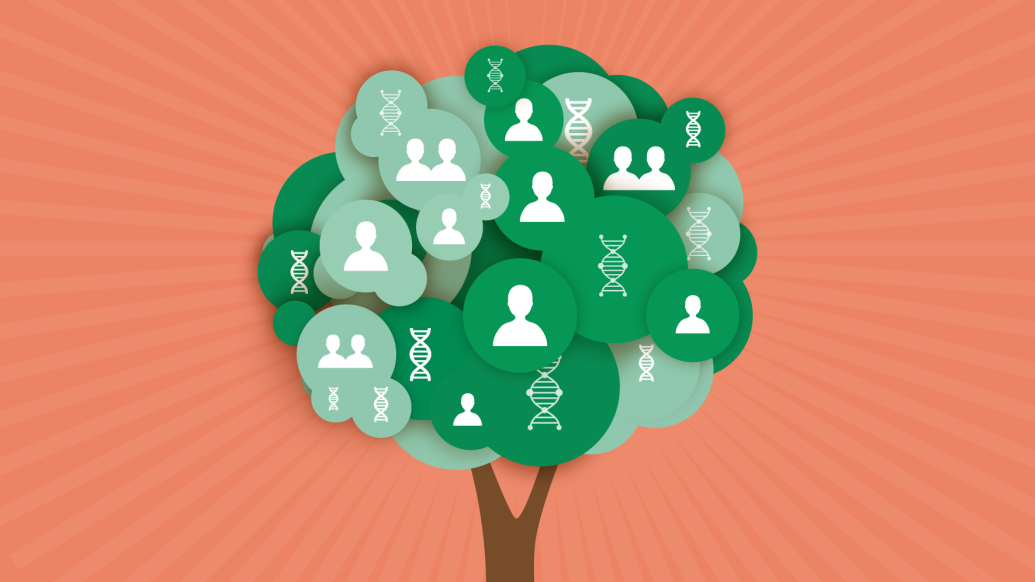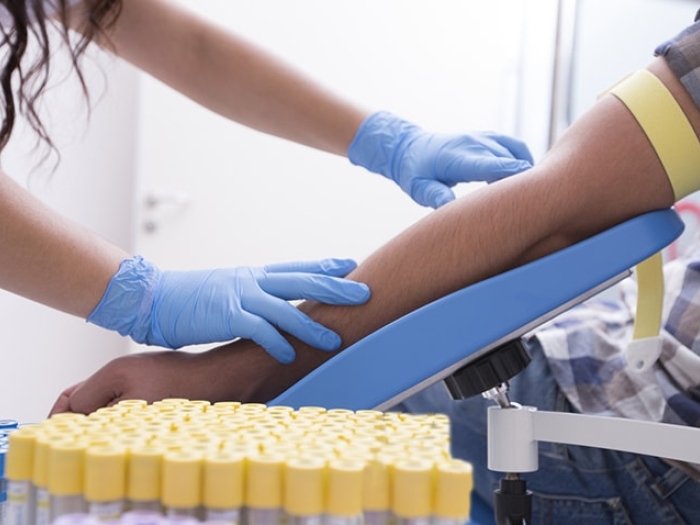If you’ve had a cancer genetic test and risk assessment, this is why you should share those results with your family.
7:00 AM
Author |

Mutations in the BRCA1 and BRCA2 genes significantly increase the risk of developing breast or ovarian cancer. Genetic testing can help reveal whether such a mutation runs in the family, which is why the results should be a family affair.
SEE ALSO: What Men Should Know About BRCA Variant Testing
Testing might start with someone who has already developed breast or ovarian cancer. The results might help the patient decide on a treatment course — a positive test suggests a much higher risk of additional cancer.
A positive test also has additional implications. Yes, the results are part of your medical record and private medical history, meaning they are your information. But they are also public, possibly affecting other family members. If the testing results identify other family members who may have a higher cancer risk, they can use the information to manage their risk and make informed decisions.
Understanding risk
Privacy laws prevent health care providers from sharing your medical information without your written consent, so it's up to you to share your test results. It's the only way for your family to hear this potentially lifesaving information.
Genetic testing information is relevant to both male and female family members and extended relatives, such as first cousins. If it is not clear which side of the family the mutation in the cancer susceptibility gene is being inherited from, tell both sides of the family.
If you have an inherited gene mutation, there's a 1 in 2 chance your mother, father, daughter, son, brother or sister also does. But others in the family also have the following risk:
-
Aunts and uncles: 1 in 4
-
Nieces and nephews: 1 in 4
-
Grandchildren: 1 in 4
-
Grandparents: 1 in 4
-
First cousins: 1 in 8
To help foster family communication, the Breast and Ovarian Cancer Risk Evaluation Program at the University of Michigan Rogel Cancer Center sends each patient a personalized letter. This letter explains the test results and their implications, which makes it easier to share with family.
SEE ALSO: What Women Should Know About Breast Density
Cancer risk counseling's goals are to provide accurate information on the environmental and genetic factors related to a person's risk for developing cancer, to discuss options for cancer prevention, and to promote adherence to medical recommendations. Extending this information to at-risk family members is paramount.
But we all know families share more than just genes, and these factors may affect communication. Even if you don't usually communicate with your relatives, it is crucial to share genetic testing information with all of them. There are things that can be done for people at risk for inherited susceptibility to cancer. You might help save a life.

Explore a variety of health care news & stories by visiting the Health Lab home page for more articles.

Department of Communication at Michigan Medicine
Want top health & research news weekly? Sign up for Health Lab’s newsletters today!





